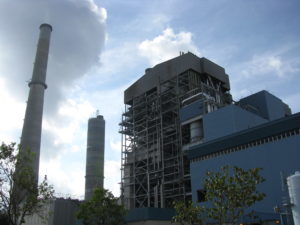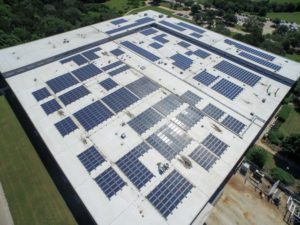 El Paso Electric (EPE) – which is a for-profit company with a monopoly in the El Paso area – is seeking higher rates for the utility’s west Texas customers and launching another attack on solar customers. Despite increasing rates last year, the utility wants to collect an additional $42.5 million each year from its customers. Under the new proposal, EPE’s customers would face an overall 8.7 percent increase, amounting to $8.25 per month for the average residential customer. Solar customers would be hit even harder under the proposal, which an average bill increase of $14.09 per month.
El Paso Electric (EPE) – which is a for-profit company with a monopoly in the El Paso area – is seeking higher rates for the utility’s west Texas customers and launching another attack on solar customers. Despite increasing rates last year, the utility wants to collect an additional $42.5 million each year from its customers. Under the new proposal, EPE’s customers would face an overall 8.7 percent increase, amounting to $8.25 per month for the average residential customer. Solar customers would be hit even harder under the proposal, which an average bill increase of $14.09 per month.
Under EPE’s proposal, residential customers with solar would be subject to demand charges, which factors in the customers maximum demand for electricity at a single point in time. Demand charges are almost never used for residential customers because they are complex and can lead to significant fluctuations in bills. Demand charges also make it very difficult for customers to take action to control their bills. Solar customers would also be subject to time-of-use rates, which means electricity rates are different based on the time and day of the week. While time-of-use rates can be a good tool, there is no justification for forcing them on customers with solar, but not other customers.
The 2017 utility tries to justify its discrimination against solar customers by using the false “cost-shift” argument. EPE plans to put the solar customers in a special class to “establish a fair rate structure that reflects the cost to serve each customer class.” To put it simply, EPE and other utilities are using the false argument that solar customers do not pay their fair share of grid-upkeep costs. This has been proven to be a false assumption by numerous studies conducted to calculate the value of solar. The improper allocation of costs to solar energy users will reduce the number of people willing to invest in solar and will leave current customers with no way to recover their costs.
EPE’s persistence in targeting solar customers has raised concerns. Several solar industry and advocacy groups, including The Alliance for Solar Choice (TASC) and Eco El Paso are going to fight the proposal at the Public Utility Commission of Texas (PUC) . Public Citizen is supporting these efforts by pushing the City of El Paso to make fighting the unfair solar fees and preventing the attack on solar a priority.
“Demand charges found unreceptive audiences among regulators in 2016, and last year, Texas residents clearly rejected El Paso Electric’s same drastic and unprecedented rate design that punishes solar customers,” says TASC spokesperson Amy Heart. Senator José Rodríguez also issued a strong statement in opposition to the proposal:
I’m disappointed that El Paso Electric insists on discouraging people from installing solar on their homes. The electric company once again wants to single out solar customers by increasing their rates at least two times the amount of their non-solar neighbors. Solar customers will no longer be able to save on their electric bills, which was the reason they installed solar panels in the first place…I strongly believe these anti-solar proposals contradict the intent of Senate Bill 1910, which I passed in 2011 to authorize solar net metering in El Paso Electric’s service territory.
Fortunately for solar customers and non-solar customers alike, the evidence clearly shows that solar customers are contributing at least as much value as they get from the grid. A recent report from the Environment America Research & Policy Center evaluated 16 “value of solar” studies, and all but a couple that were conducted by utilities showed that the value of energy solar customers contribute to the system is higher than the retail rate they offset with net metering.




